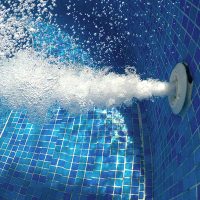The Jacuzzi Can Be More Dangerous Than It Looks

It often seems like activities that seem the safest, can also be kind of dangerous. Add a dip in the hot tub to the list. But really, it should come as no surprise that being in potentially scalding hot water, and sharing that water with others, could have its fair share of potential dangers.
The Heat is On
The most obvious danger of the hot tub is what makes it a draw in the first place: The heat. The hot water is refreshing and relaxing, but because it’s wet, we may not even notice our bodies sweating, and thus possibly overheating. Heat stroke or heat exhaustion can happen as much in the water as it can out of the water: It’s all about body heat.
Temperatures in a jacuzzi should not exceed 105 degrees (note that many communal Jacuzzis have temperature dials, where people can set the heat for much higher than this temperature; check before going in what the temperature is set at).
You should not be in a hot tub for more than 15 minutes at one time, although the lower the temperature, and the cooler it is outside, the longer it is safe to be in the water.
Note that minors need to take special care. Their bodies are not ready to withstand the same temperatures, for the same duration of time, as adults can withstand.
Disease and Bacteria
Many of us feel the hot tub is free and safe from disease, because of the heat of the water. That is not entirely true.
First, the heat of a hot tub isn’t hot enough to sterilize and kill all diseases or microbes that may be in the water. The other problem is that the water is hot enough to neutralize or lessen the effect of the chlorine in the water. That means that you don’t get the same disease protection in a jacuzzi, as you would in a chlorinated pool.
Also unlike a pool are the bubbles that boil up from the jets inside the jacuzzi. When those bubbles pop in the air or on the water’s surface they spread whatever viruses or microbes that were in the water, an effect that you don’t get with a traditional pool. Simply breathing in the mist from the popping and fizzing on the surface of the hot tub, can lead to exposure to dangerous diseases, including various kinds of infections.
Drains and Suction Dangers
Many older Jacuzzis, or residential ones, may not have protections from suction. Unlike a pool, where we don’t sit on the bottom of the pool, we do or can sit on the floor of a hot tub.
That means that the risk of having limbs sucked into drains—or worse, being disemboweled (it has happened before) is much greater—especially for younger or older people, who may not have the strength to dislodge themselves from suctioned drains.
Contact our Rhode Island personal injury lawyers at Robert E. Craven & Associates at 401-453-2700 if you are injured in a pool or jacuzzi.
Sources:
aquaticsintl.com/facilities/waterparks-resorts/drain-entrapment-is-no-laughing-matter_o
cdc.gov/legionella/wmp/control-toolkit/hot-tubs.html
